ST vs LT Tires: The Battle of Durability and Performance
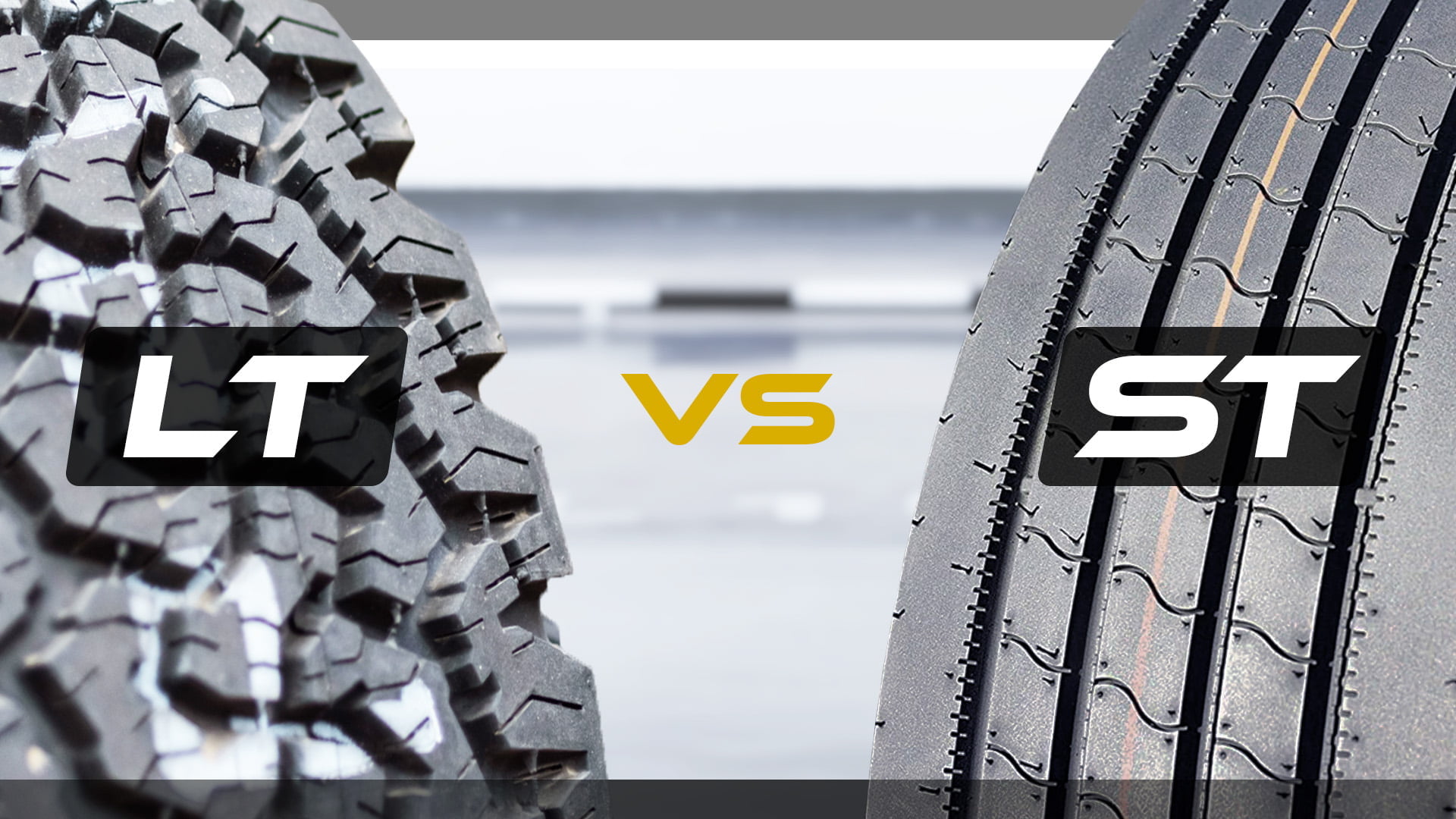
When it comes to the type of tires to use on a trailer or 5th wheel trailer, there is often a lack of information and a big debate among automotive enthusiasts. Heading over to forums and typing “ST vs. LT tires” often leads to a good deal of debate and varying opinions.
In this blog post, we break down the key differences between these two types of tires in an easy-to-understand format tailored to help you make the right decision for your specific needs.
Understanding ST And LT Tires
What Are LT Tires?
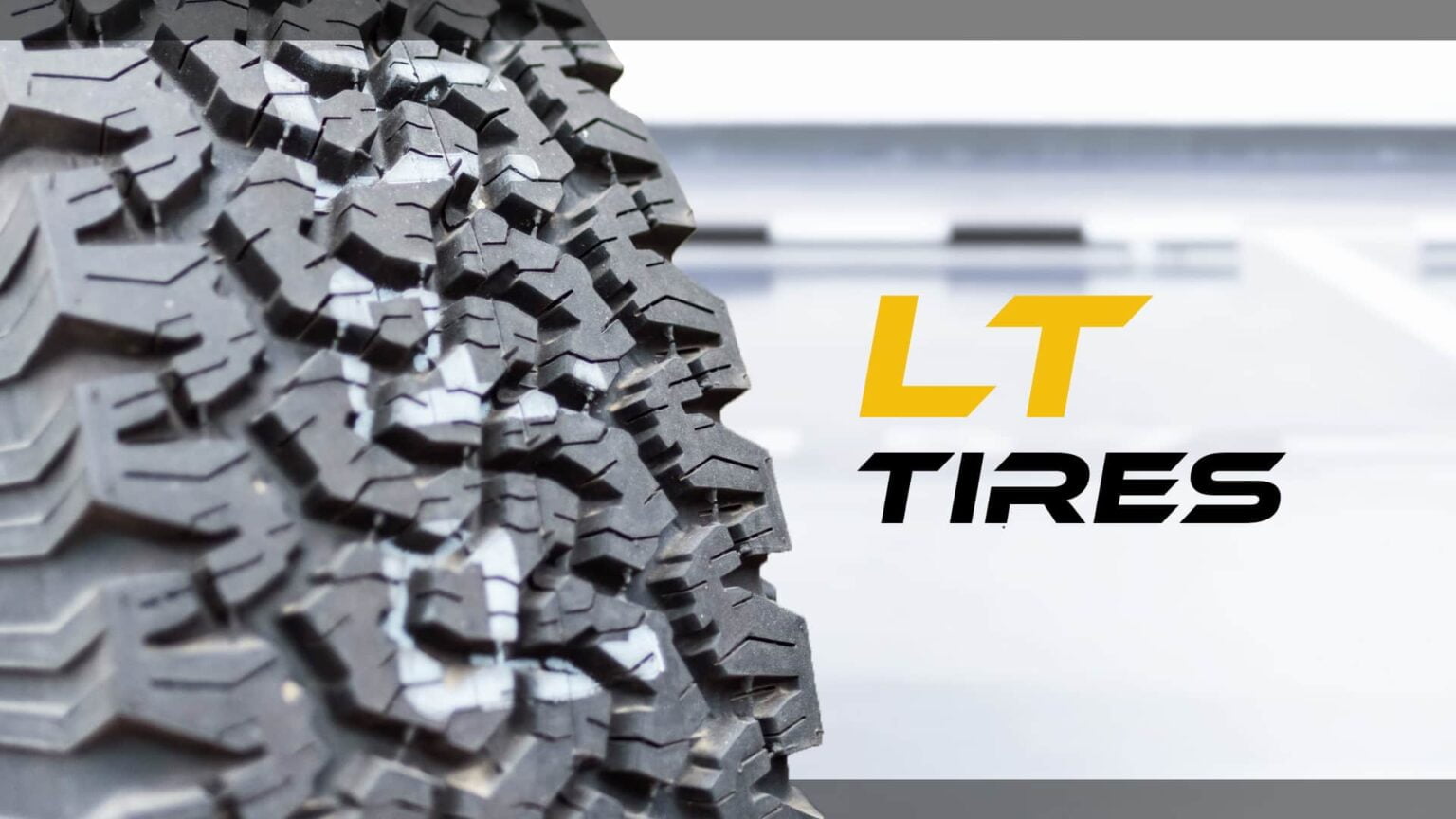
While passenger tires (P Tires) give cars a buttery-smooth ride, they can quickly become overwhelmed by heavy loads. Bending and flexing cause heat to build up in the tire, which can lead to blowouts and other dangerous situations.
That’s where the Light Truck (LT) tires come into play. LT Tires are designed for heavier-duty trucks and SUVs that need to carry more weight. Compared with passenger tires, LT tires have thicker sidewalls and feature a higher-grade construction. This makes them more rigid so they don’t bend and flex as much under load.
Still, to maximize comfort for passengers, tire manufacturers develop these tires so that they provide enough flex to give a comfortable ride.
What Are ST Tires?
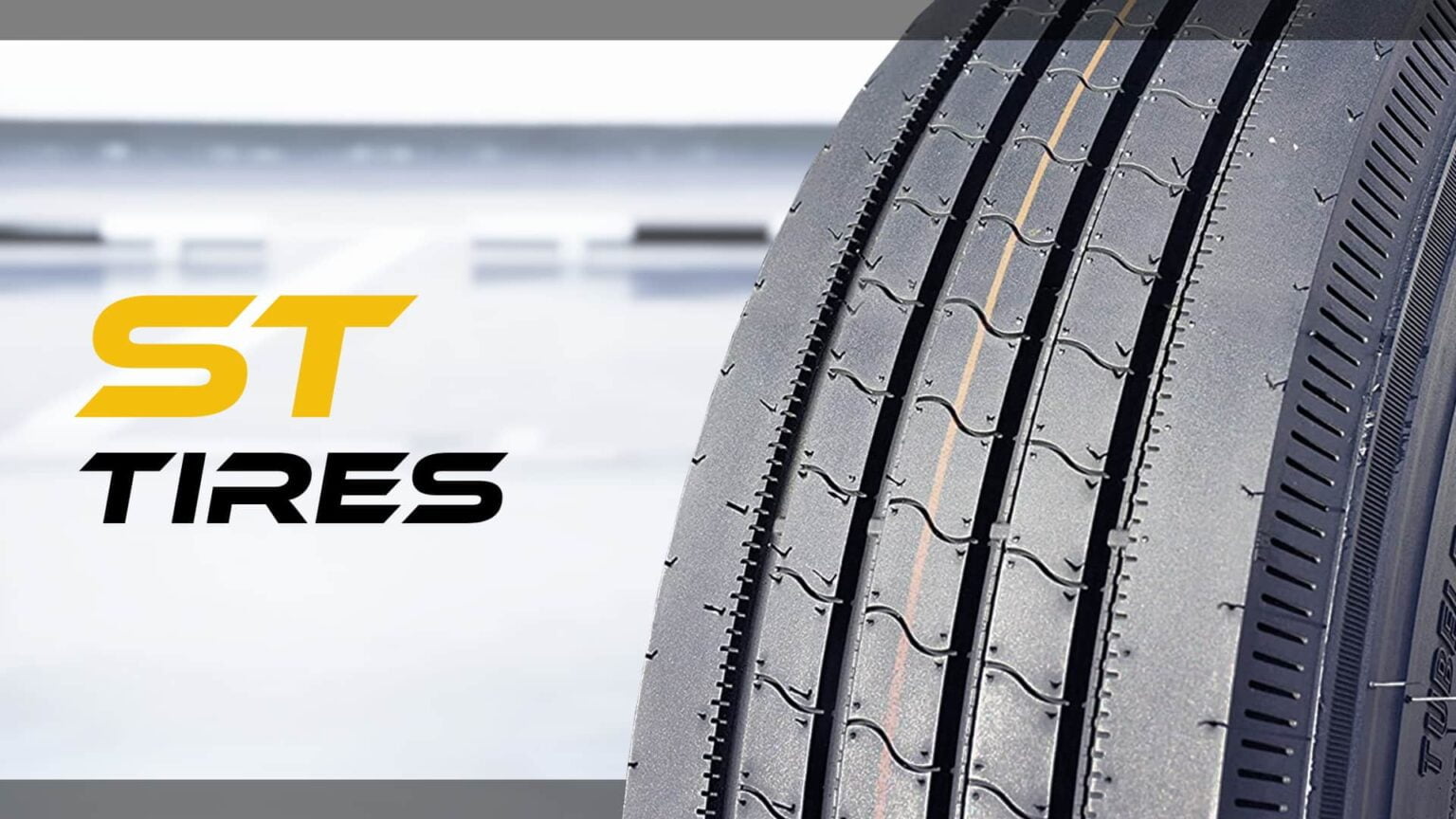
Special Trailers tires, or STs, are designed specifically for trailer use. These tires feature a rigid construction that allows them to hold up heavy amounts of weight; provide stability while traveling with heavy loads and prevent trailer sway.
ST tires feature polyester cords which are thicker than a typical P or LT tire. The steel wire used also has a larger diameter and greater tensile strength to meet the load requirements.
Since trailers are meant to be pulled and do not require high levels of grip, Special Trailers tires are equipped with a tread design that offers lower resistance on the road which can result in increased gas mileage and ease of towing.
Lastly, ST tires are designed to withstand the wear and tear of towing a trailer. The rubber compound used in these tires is harder and features more chemicals that resist aging and UV rays.
ST vs LT Tires
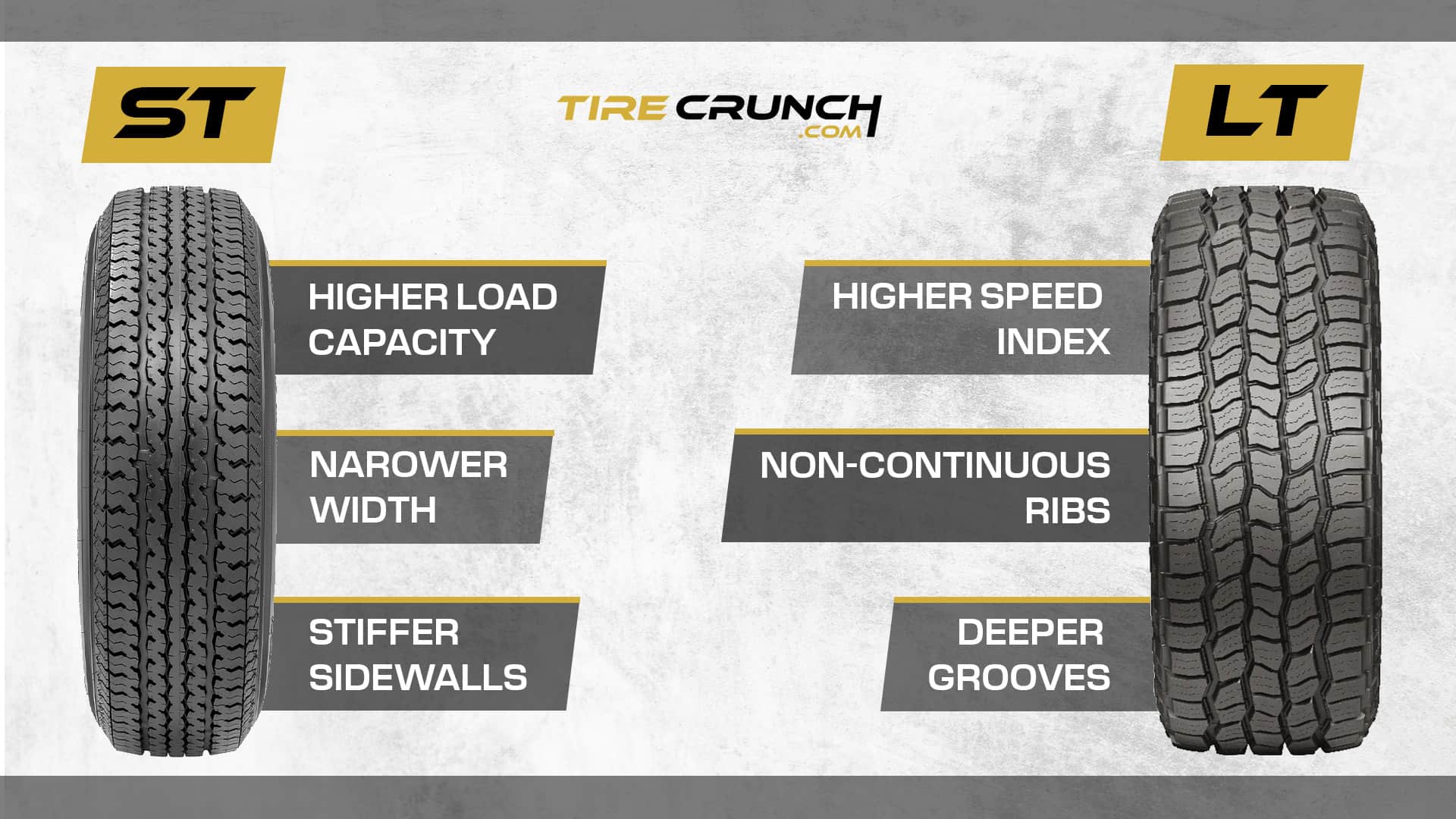
1. Load Capacity
As previously mentioned, ST (Special Trailer) tires are specifically designed for trailers, offering stiffer sidewalls and higher load capacities compared to their LT (Light Truck) counterparts.
Conversely, LT tires generally possess lower load capacities than ST tires but offer greater versatility in terms of speed ratings and comfort.
Related Reading: How Are Trailer Tires Different Than Standard Tires? | Tire Rack
2. Speed Rating
When it comes to speed rating for ST tires on trailers, the options are more limited than they are for passenger and light truck tires. This is because trailer tire structures and compound blends are built to withstand high load pressure, but not very good heat resistance.
Exceeding the towing speed limit can cause heat or pressure accumulation rapidly leading to tire fatigue and failure.
Most travel trailers should not be towed faster than 65 mph.
However, thanks to modern manufacturing technologies, tire brands are now creating sturdier ST tires with higher speed ratings, up to 75 mph. To learn more about available speeds for trailer tires, check out a helpful chart below:
| Speed Rating | Speed (MPH) | Speed (KPH) |
| G | 56 | 90 |
| J | 62 | 100 |
| K | 68 | 110 |
| L | 75 | 120 |
3. Life Expectancy
Though consumers may expect ST trailer tires to last as long as P or LT tires, this is unrealistic. ST tires are subjected to more weight, more sidewall stress, and more user-related tire issues than other tires.
As a result, they usually won’t perform for as long and may need to be replaced more frequently.
When To Use ST Or LT Tires?
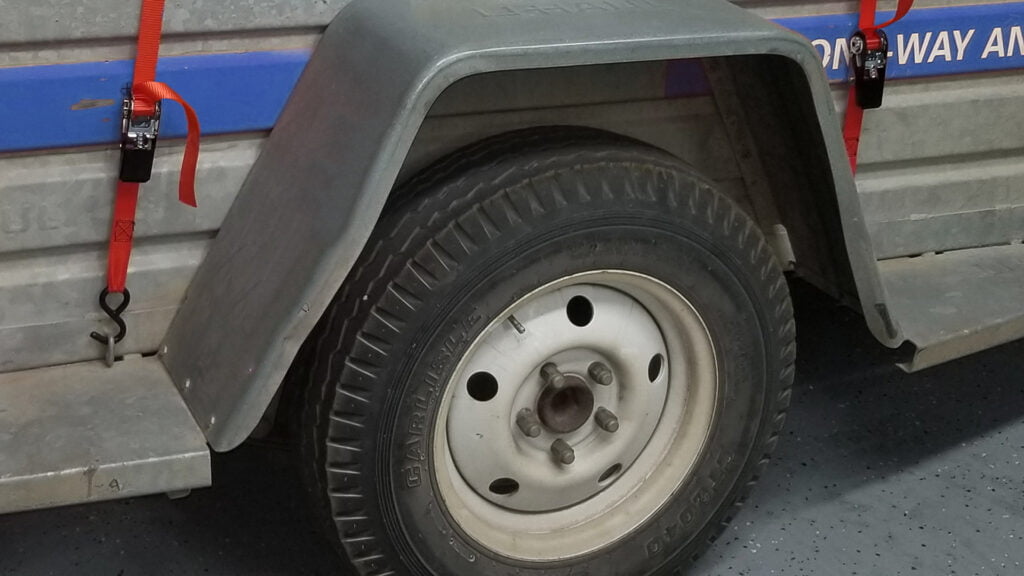
Generally, ST tires are designed for trailer use only. These tires have stiffer sidewalls that allow them to carry heavier loads at lower speeds, making them ideal for travel trailers, boat trailers, and utility trailers.
On the other hand, if you own a heavy-duty truck or SUV that needs to carry more weight than a standard passenger car or light truck, then LT tires may be suitable. These specialized tires provide better comfort and greater stability at higher speeds compared to ST tires.
Should You Use LT Tires on Your Trailer?
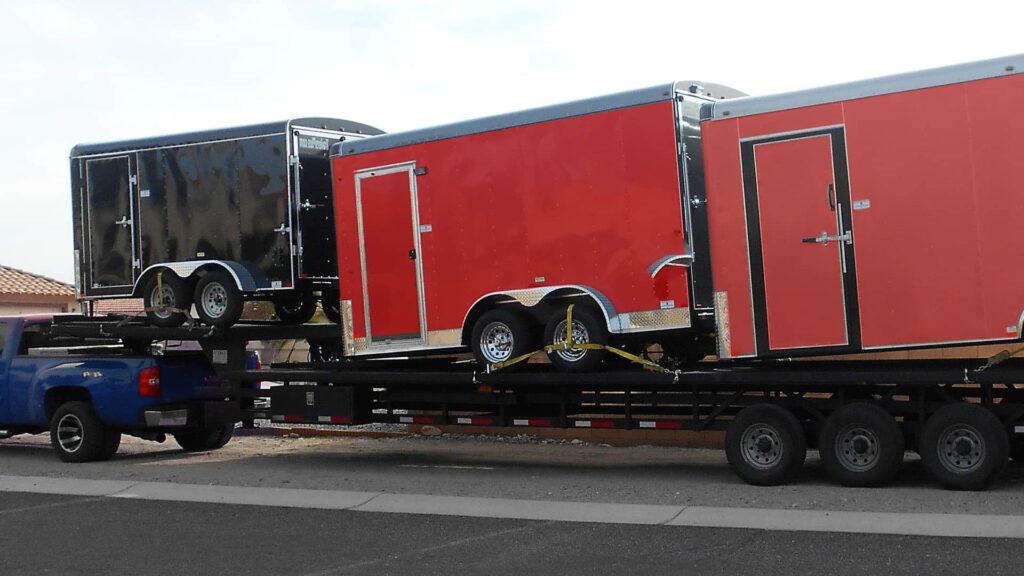
While LT (light truck tire) tires may seem like a suitable alternative to specialized ST tire, it is not recommended to use them on trailers. That’s because LT tires are designed for use on trucks and SUVs with different demands than what trailers require. As a result, they may not perform as expected when used on a trailer.
As previously mentioned, one key difference between LT and ST tires is their construction and load rating limitations. ST tires feature significantly greater load capacity ratings compared to passenger-rated LT tires, which can carry heavy loads without risking tire failure due to overloading or sidewall damage.
Trailer Tire Safety
Proper trailer tire safety is crucial to ensure your towing experience is safe and hassle-free. From proper inflation to avoiding overloaded trailers, there are several key factors to consider when it comes to trailer tire safety.
1. Overloading
An overloaded trailer is a recipe for disaster. When you put too much weight on your trailer, it puts undue stress on the tires and other components. This can cause tire blowouts, and damage to the suspension system.
2. Speed Rating
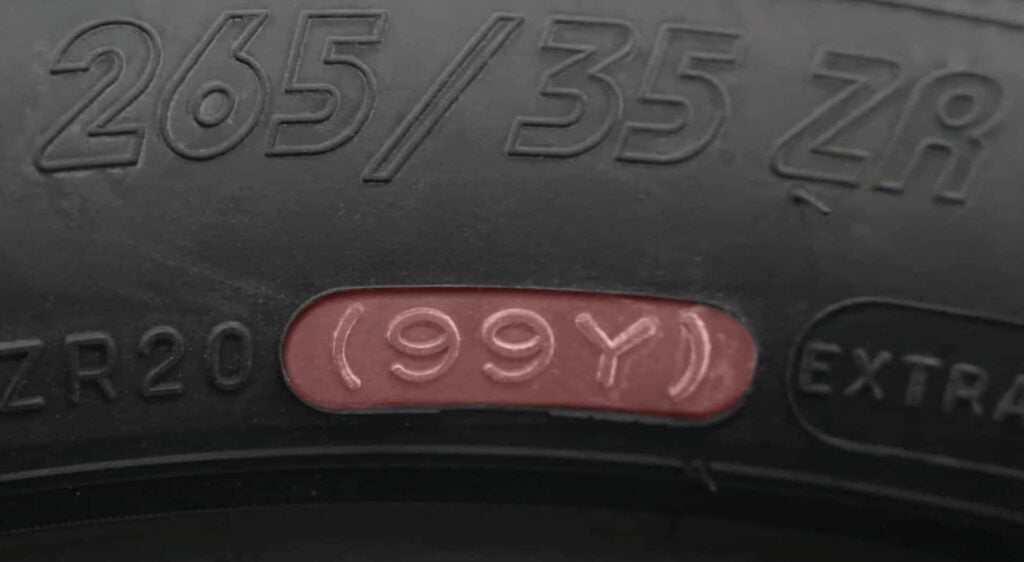
Different types of tires have varying speed ratings that determine their maximum safe operating speeds. For instance, ST trailer tires typically have a maximum speed rating of 65 mph, while LT truck tires may accommodate higher speeds.
It’s important to note that the speed rating on your trailer or vehicle’s original equipment (OE) tires should not be exceeded. Doing so risks damaging the tire and jeopardizing the safety of everyone on board.
3. Proper Tire Pressure
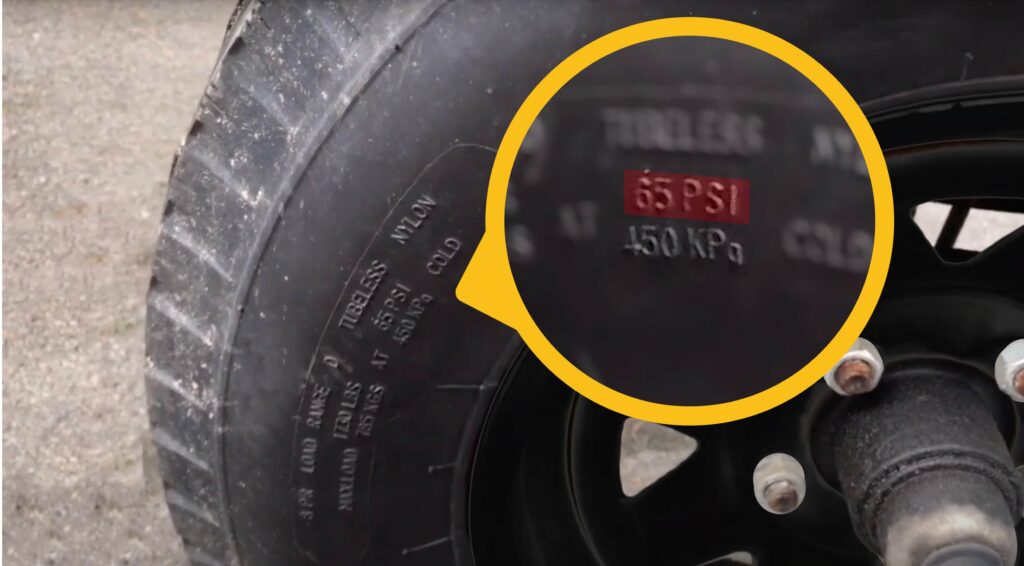
Proper inflation is crucial for ensuring safety while driving with a trailer. Underinflated tires can lead to irregular wear, reduce fuel economy, and increase the likelihood of a tire blowout.
Overinflated tires may make the ride stiffer than necessary and also impair handling.
4. Age of the tires
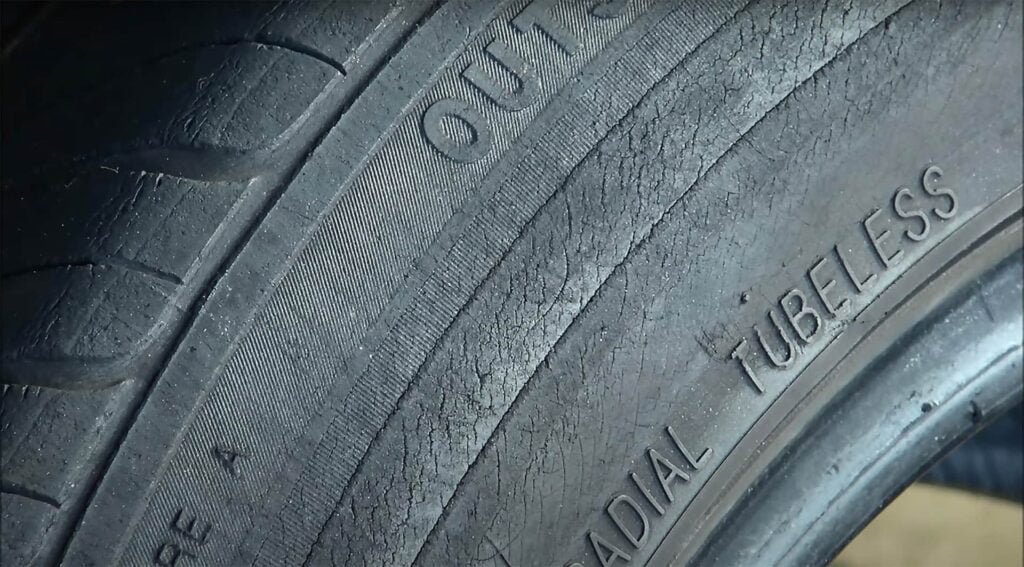
Another critical factor to consider when it comes to trailer tire safety is the age of the tires. Even if you have taken good care of your tires, they still have a limited lifespan and can degrade over time. Most experts recommend replacing trailer tires every 5-6 years, regardless of their condition or how many miles they have traveled.
This is because many things can cause tire deterioration over time, such as exposure to sunlight and weathering. Tires that sit unused for long periods are also at risk of developing flat spots or dry rotting.
5. Heat Buildup
Heat buildup is one of the biggest concerns when it comes to trailer tire safety. When a tire gets too hot, it can cause significant problems that could lead to an accident. Heat buildup occurs due to factors such as overloading the trailer or underinflating the tires.
Conclusion – Making The Right Tire Choice
In conclusion, choosing the right tire for your travel trailer or RV is critical to ensure a safe and enjoyable journey. When considering ST and LT tires, it’s essential to understand their differences in load range capacity, construction, speed rating, and cost.
While LT tires may seem appealing to some trailer owners due to their popular use on light trucks, ST tires are specifically designed and built for trailers with thicker sidewalls and higher load capacities.
Consult your vehicle manual or seek professional recommendations before making a final decision on which tire size and type is suitable for you. Remember that proper inflation, regular maintenance checks, driving within the designated speed limit will keep you safe from any avoidable accidents caused by tire failure while enjoying your travel experience!
